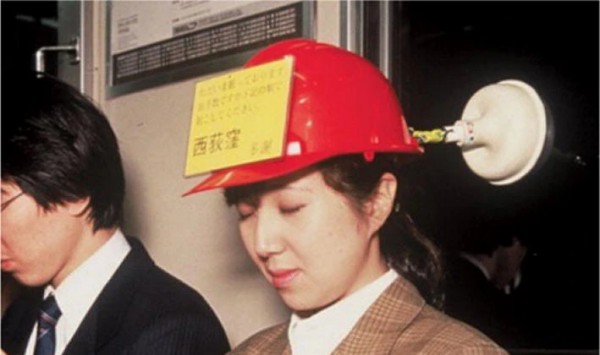What if the city were bad for brain?
It would explain a few things, for sure.

Two days ago I posted my hypothesis that the decreased “productivity” in cities caused by COVID-19 exoduses may be a gain, not a loss. Then this morning, by sheer chance, I saw again a bookmark of mine from January 2009, about something that in my opinion is about the general topic.
That bookmark was about a research on why and how “the city hurts your brain”. Its main points were that, while “the city has always been an engine of intellectual life and the ‘concentration of social interactions’ is largely responsible for urban creativity and innovation”…
- being in an urban environment impairs our basic mental processes, because…
- the mind is a limited machine [and there are] different ways that a city can exceed those limitations
In practice, a city is “so overstuffed with stimuli that we need to redirect our attention constantly so that we aren’t distracted by irrelevant things”. The result is that, said that research, “after spending a few minutes on a crowded city street, the brain is less able to hold things in memory and suffers from reduced self-control”.
“This sort of controlled perception - we are telling the mind what to pay attention to - takes energy and effort. Natural settings don’t require the same amount of cognitive effort."
So maybe this could explain, at least partly, why what passes for productivity and innovation these days… from major cities sucks so much. And why, again, a mass exodus of inventors from cities may, eventually, be a GAIN in REAL productivity.
Image source: The “Subway Sleeper” from “Beyond flatland: when smart cities make stupid citizens” (2018), originally from Chindogu japanese inventions
Who writes this, why, and how to help
I am Marco Fioretti, tech writer and aspiring polymath doing human-digital research and popularization.
I do it because YOUR civil rights and the quality of YOUR life depend every year more on how software is used AROUND you.
To this end, I have already shared more than a million words on this blog, without any paywall or user tracking, and am sharing the next million through a newsletter, also without any paywall.
The more direct support I get, the more I can continue to inform for free parents, teachers, decision makers, and everybody else who should know more stuff like this. You can support me with paid subscriptions to my newsletter, donations via PayPal (mfioretti@nexaima.net) or LiberaPay, or in any of the other ways listed here.THANKS for your support!